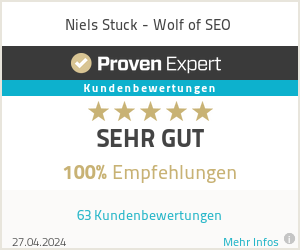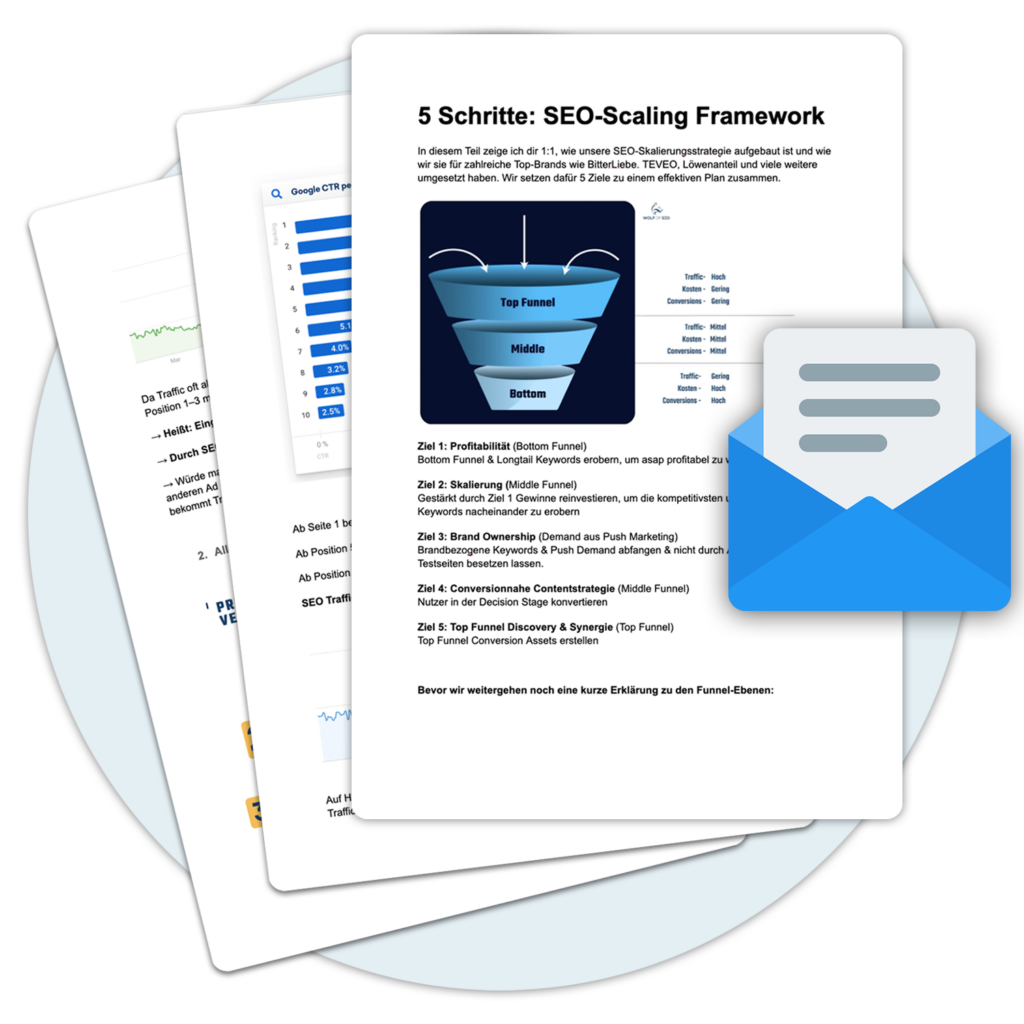
What is a keyword?
Keywords are special words and phrases within your web content that enable users to find your website via search engines such as Google. A website that is optimized for search engines "speaks the same language" as its potential users with these keywords. They help to connect users with your website. Keywords are one of the main elements of SEO.
In other words, you need to know how people search for the products, services or information you offer. By doing this, you make it easier for users to find you. Otherwise, they'll end up on one of the many other pages in the Google results (SERP). The implementation of Keyword SEO thus helps websites stand out from the competition.
For this reason, developing a list of keywords is one of the first and most important steps of SEO (Search engine optimization). Keywords and SEO are directly linked when it comes to running a successful marketing campaign.
Find your best keywords!
Many SEO marketers make the same mistakes with the Keyword Research:
- The Keyword-Research is performed only once
- It is not bothered the SEO Keyword-update and extend the list
- Use of keywords that are too competitive, i.e. keywords that are in tough competition with each other
Basically, the SEO should Keyword-Research should be an ever-evolving part of your job as a marketer. Old ones need to be re-evaluated regularly, and high-volume keywords can often be usefully replaced or supplemented with longer, more specific phrases that engage not just every visitor, but just the right visitors.
Furthermore, diversification is necessary. It is true that diversity is a key word in the Keyword-world. You won't stand out if you use the same keywords as your competitors. Always keep an eye on: Who else is using your keywords? And how do you stand out from the rest?
Providing great content, combined with real added value for potential visitors or customers, will always be the Ranking improve a website's ranking in search engine results!
What makes a good keyword?
Here's a detailed list of the factors that make a potential-laden Keyword make up:
1. search intent
This is one of the most obvious factors, but one that is too often forgotten.
Simply put, we want to make sure that the user's search intent (and the search query he or she made in the Search Engine ) matches the intention, or the content of the web page that he should find in the search results.
How can we achieve this? The easiest way is to make every Keyword, which you are considering typing into Google and looking through the results on the first page.
Ask yourself the following questions:
- Are the results mostly commercial or informational?
If you are searching for keywords for a product or service page and the results on page 1 are mostly informative in nature (e.g. blog posts, news sites, etc.), there is most likely a mismatch between your and the users' intent! - Are there any companies similar to yours?
Sometimes keywords can be relevant to more than one niche or industry, or have yet another meaning - Is your "Keyword" possibly the company name of another company?
You would be surprised how often this is the case. If the answer to this question is yes, it is very likely that the first 3 - 5 Search results in the SERP's, to the website of that very company, or to their online profiles such as on LinkedIn. - Do the results contain multimedia content such as PDFs or videos?
If so, this indicates that users are particularly looking for images or videos to answer their question - or search intent. The chance of being at the top of the search results then becomes next to impossible without offering such content on your part.
In summary: If your Content is similar to the top 10 in the search results, you are on the right track!
2. search volume
In short: The Search volume refers to the frequency with which people search for a particular word or phrase. Typically, it is presented as a round number per month or as a monthly average over a year.
The numbers are not 100% accurate, but they give a picture of how often users search for a term or phrase. It quickly becomes apparent that some things are searched for much more often than others.
Now the question arises: At what point can one speak of a "good" Search volume speak?
As is often the case, there is no exact answer to this question, as it is influenced by too many factors. How much Search volume you ultimately (should) aim for depends entirely on your business, your industry, your region, and the type of content you offer on your website. The numbers range from 30 searches per month to tens of thousands of searches per month.
Ask yourself the question: How much Traffic would your website need to generate each month to have a meaningful impact on your business?
Here are two examples for companies that are affected by only 30 additional visits per month could benefit:
- A small dental practice in a suburb of Leipzig:
This company probably only serves people within a small geographic area. They don't need hundreds or thousands of new patients every month. Therefore, targeting keywords in the range of 30 - 100 searches/mo would likely have a significant impact on their business.
- A B2B company that provides high-transaction services:
This type of business would likely benefit more from longer, more targeted (i.e., more targeted) keywords with lower Search volume benefit than from broader terms with higher Search volume. For this business, as few as 2 - 3 new leads per month could be significant.
Now we consider two examples of companies that use keywords with a higher Search volume want to address:
- A medium-sized E-commerce-Pet Supplies Company
This company can already boast more than 10,000 visits per month to its website and rely on a much higher customer acquisition rate. As such, the Ranking for a Keyword with 30 - 100 searches/mo does not mean a significant increase in sales. You would rather target keywords in the range of 100 - 1,000 or more.
- A nationally recognized consumer apparel brand.
This business may receive more than 100,000 visits per month to its website. Similar to the pet business, it relies on a higher customer acquisition rate. Their target market is also much larger than the other three examples and as such, they might be looking at keywords with over 1000 searches/mo.
Do you know your competition?
This paragraph is about the so-called "competitiveness" of your keywords.
Domain Authority (DA)
The Domain Authority is based on so-called "link metrics" and assesses the "strength" of a website in the eyes of search engines. It is primarily concerned with the quality and quantity of other websites that link to it (backlink structure).
So they experience the Domain Authority of your competitors' websites:
- Add MozBar (free!) to your web browser.
- Turn it on and enter your Keyword in Google.
- Check the Domain Authority (DA) of the results on page 1.
Ideally, the DA of your website is higher than some of the results on page 1. If you are far below your competitors, that may be Keyword be too "competitive" for you.
Title tags
This refers to the blue "headline" that appears for each web page in the search results.
This way you can quickly find out how relevant the current page 1 results are for your search query:
- Search for a keyword you want to analyze.
- Scan the title tags for the best results.
- If your Keyword appears at the beginning of all title tags, it means that these pages are probably - in the eyes of Google and Co. - very relevant and well optimized for this term (and thus more difficult to outrank)
Following this list of different methods, you will find useful keywords with a lot of power with which you can optimize your website.
« Back to Glossary Index





 By
By 